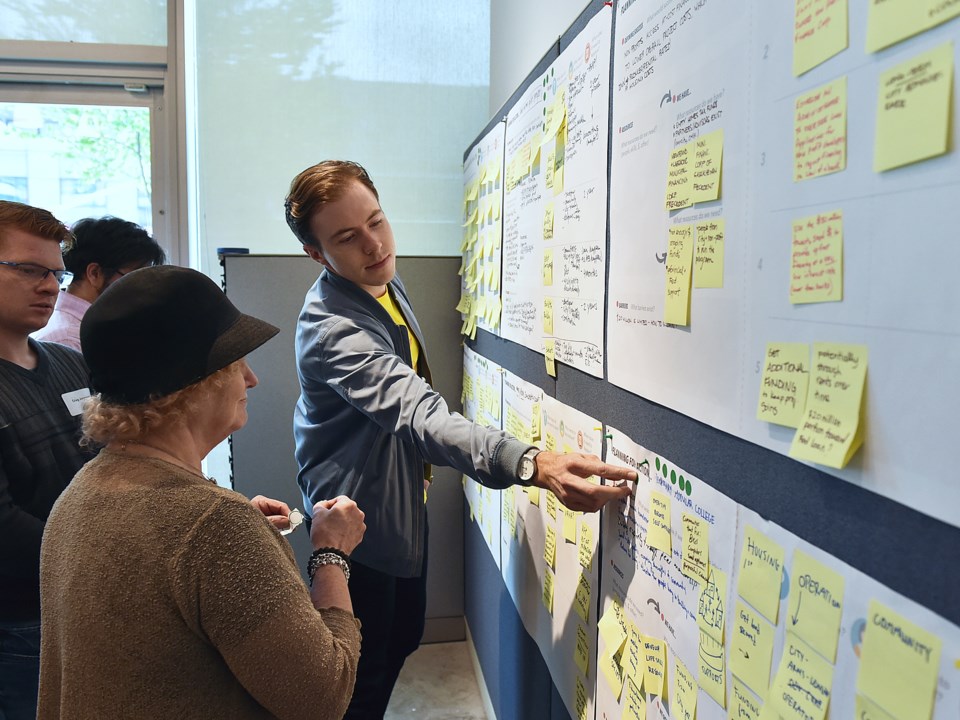City of Â鶹´«Ă˝Ół»staff are recommending a large chunk of the $8 million in extra revenue the city has collected to date through the empty homes tax be spent on more affordable co-op and non-profit housing.
Staff propose $4.175 million be divvied up between providing land and resources for affordable non-profit and co-op housing ($3.175 million) and more co-op housing grants to update and improve existing co-ops and build new co-ops ($1 million.)
They also recommend a significant portion — $3.5 million — be spent on improvements to low income housing. If approved, the money would be earmarked towards contributing to purchasing buildings and/or to provide assistance towards improving living conditions in private single-room occupancy housing.
The remaining portion of the $8 million is proposed to be spent as follows:
- $175,000 for support for vulnerable renters ($100,000 of it to support renters facing eviction and $75,000 for funding for the Â鶹´«Ă˝Ół»Rent Bank)
- $100,000 for “skills training in peer support, affordable housing management and asset training for residents of supportive housing,” an idea based around a “Temporary Modular College” idea pitched at a city-run “idea jam” for how to spend empty homes tax revenue
- $50,000 for matching empty/underutilized homes and rooms with renters looking for housing based on a top idea from online consultation around shared housing models such as senior/student housing arrangements.
The city from the tax in the first year, with implementation and operating costs tagged at $10 million, leaving $20 million to be invested on affordable housing initiatives.
About $18 million of the $30 million has been collected to date. When you subtract implementation and operating costs, it leaves $8 million for distribution.
The staff proposals go before council June 19.
The city created an online platform earlier this year to collect feedback from the public on how money from the empty homes tax should be spent, which generated more than 130 ideas. Similar ideas were grouped and the suggestions were ranked based on overall likes. The most popular idea was to support co-ops through grants to maintain and build new co-ops (349 likes), while housing and providing supports for the homeless placed second (206 likes). Supporting co-living arrangements such as through senior-student matches or co-living rentals landed in third place (182 likes), followed by supporting non-profits or co-ops in creating new affordable housing units ranked fourth (175 likes).
The city also May 17 to generate suggestions. At the end of the workshop, the ideas were assessed by a three-person panel in a friendly Dragon’s Den-style process. One of the most-popular proposals was for city support for co-op housing.
Yuri Artibise, who’s on the board of directors for the Co-operative Housing Federation of B.C., presented that idea at the idea jam.
Artibise told the Courier Thursday, June 14, that he’s very encouraged to see the city promoting the development of new co-op and non-profit housing as a priority.
“This was clearly the consensus that emerged from the consultation,” he wrote in an email.
“However, the amounts collected to date are relatively small and will not have much impact on their own, especially given the current high cost of land and construction. Once we see how much the tax produces in total, and how the city plans to use the to deliver it, the co-operative housing sector will be in a much better position to assess its potential impact.”
Another popular proposal at the idea jam was for “temporary modular colleges” — small modular housing communities that provide homes to the homeless while also featuring peer-to-peer mentorship programs to enhance residents’ life skills. Lengths of stays would be time-limited so residents would graduate and go. The college was also intended to transition towards resident self-management after an initial period of management by an arms-length municipal organization, according to the proposal that Karen Ward pitched at the idea jam.
City staff’s recommendation around the idea is to allocate $100,000 in funding for “skills training in peer support, affordable housing management and asset training for residents of supportive housing.”
“Asset training” refers to asset management training because staff heard, through consultation, that residents of existing social and supportive housing want to be more involved in the management of buildings where they live. This program, if approved, would involve on-site peer mentoring and other services to help them do that. However, while the idea presented at the city workshop focused on temporary modular sites, specific locations for the program have yet to be determined.
If council approves any or all of the funding allocations outlined in the report, staff would create implementation plans for each of the recommendations to address those types of details.
Ward told the Courier she is very surprised to see staff went with the idea, pointing out many participants at the idea jam were professionals who work in housing or for non-profits, and she’s not used to being listened to.
She’s an artist who lives in supportive housing in the Downtown Eastside. She's been involved with the Â鶹´«Ă˝Ół»Area Network of Drug Users and has been an activist around housing and drug policy.
Ward said she’s waiting to see more details about how the staff recommendation would work.
“I always say when I talk about other policy that it would be helpful if the people who are going to be most affected are involved in developing it,” she said. “Programs will run much more successfully if people are actually developing them themselves. Then it won’t be someone else’s idea of what’s needed.”
@naoibh



